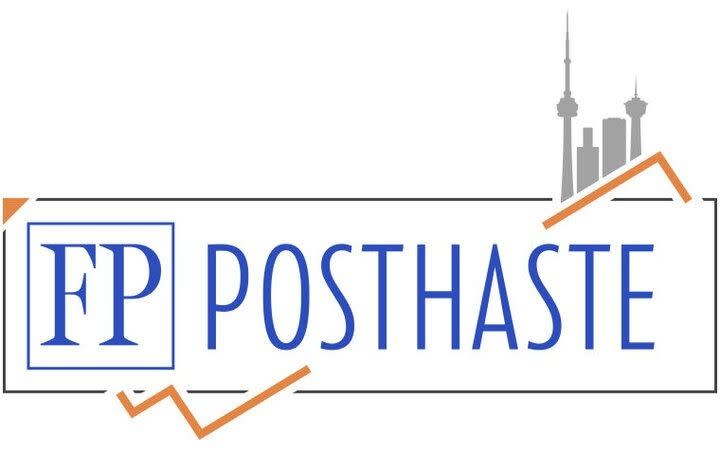Posthaste: In Canada's housing market, it matters who your parents are


Getting on the property ladder is so tough these days more young Canadians despair of ever getting to the first rung.
Prices have cooled since the pandemic housing boom, but higher mortgage rates are a new hurdle for would-be buyers.
The average selling price of a home in Canada in October was $656,625, up 1.8 per cent from a year ago. The average price in Toronto hit $1,125,928 last month, and in Vancouver it reached $1,196,500.
A new study by Statistics Canada has found that some Canadians have an advantage for getting on that ladder over others — their parents.
The study, according to the agency, provides the first detailed analysis of the relationship between parents who own property and the likelihood of their children owning a home, using tax data and data from the Canadian Housing Statistics Program.
It found that adult children born in the 1990s whose parents were homeowners were twice as likely to own a home than those whose parents were not homeowners.
Children of homeowners had a homeownership rate of 17.4 per cent, compared with a homeownership rate of 8.1 per cent for the children of parents who did not own a home.
The homeownership rate of children whose parents owned more than one property was even higher at 23.8 per cent, nearly triple the rate of the children of non-homeowners.
“The analysis establishes a robust positive relationship between parents’ property ownership and the likelihood of homeownership for their adult children, even when controlling for income, age and province of residence,” said authors Michael Mirdamadi and Aisha Khalid.
“Inequality of homeownership appears to be reproduced across generations as parents’ property ownership conveys significant financial advantages to their children.”
The study also found “significant differences” between the average income of the adult children who owned a home and those who did not. The average income of non-owners was $36,000, while homeowners had an average income of $65,000.
The average income of adult children with parents who owned multiple properties was about $6,000 higher than those of non-homeowners.
Where you live also makes a difference.
Canadians born in the 1990s had the highest rates of homeownership in New Brunswick at 20.5 per cent and the lowest in British Columbia at 14.1 per cent, reflecting that region’s high property prices.
The gain from parental property ownership to the homeownership rate was also highest in Ontario and British Columbia.
“This may signal that in housing markets with higher property values, where higher incomes are necessary for ownership, parents’ property ownership or wealth plays a larger role in their adult children’s homeownership outcomes,” said the study.
Growing unaffordability of housing in Canada has increased younger generations’ reliance on the so-called bank of mom and dad.
Statistics Canada cites a CIBC study that showed between 2015 and 2021, the share of first-time buyers who received a financial gift from family rose from 20 per cent to 28 per cent, and the average amount of the gift rose from $50,000 to $80,000.
_____________________________________________________________________
Was this newsletter forwarded to you? Sign up here to get it delivered to your inbox.
_____________________________________________________________________


Global debt hit a “staggering” US$307 trillion in the third quarter, rising substantially in both mature and emerging markets, the Institute of International Finance reported in its recent Global Debt Monitor.
While the IIF says private-sector debt remains largely manageable, higher interest rates that push up debt service costs are creating vulnerabilities.
With banks tightening credit for private-sector borrowers, companies with low credit ratings are under stress. This IIF chart shows that corporate bankruptcies are rising in most countries and Canada ranks among those experiencing the biggest increases.
Finance Minister Chrystia Freeland will present the government’s fall economic statement at about 4 p.m. ET. The statement will provide an update on the state of the economy and the government’s economic plan since the spring budget. Read what to expect here
Federal Reserve’s FOMC minutes from its Nov. 1 interest rate decision
Today’s Data: Canada’s Consumer Price Index, new housing price index, U.S. existing home sales
Earnings: Lowe’s Cos., Best Buy, George Weston, NVIDIA, HP Inc.
Get all of today’s top breaking stories as they happen with the Financial Post’s live news blog, highlighting the business headlines you need to know at a glance.

_______________________________________________________
No ‘broad handouts’: What economists expect from today’s economic update
New purpose-built rental units are coming, but they won’t be cheap
If you have American connections, you may owe the IRS some tax money
Fundamentals drive the market in the long term, but pretty much anything can happen in the short term since investors don’t always behave rationally. Veteran investor Peter Hodson gives us five reasons why markets aren’t always efficient and how that affects your portfolio.
____________________________________________________
Today’s Posthaste was written by Pamela Heaven, @pamheaven, with additional reporting from The Canadian Press, Thomson Reuters and Bloomberg.
Have a story idea, pitch, embargoed report, or a suggestion for this newsletter? Email us at posthaste@postmedia.com, or hit reply to send us a note.
Bookmark our website and support our journalism: Don’t miss the business news you need to know — add financialpost.com to your bookmarks and sign up for our newsletters here.

 Yahoo Finance
Yahoo Finance 



